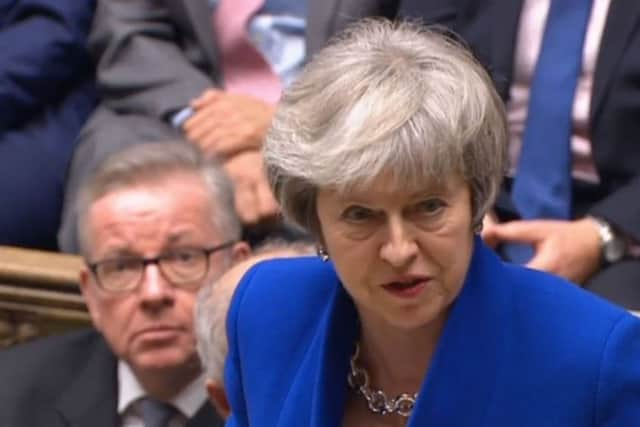Haulage boss calls for Article 50 extension, warning no deal will ‘greatly harm’ firms


Adam Johnson, of Leeds-based Tudor International Freight, said it was impossible to see how departure arrangements acceptable to the bloc and most British MPs could be put in place by the March 29 deadline, now less than 70 days away.
Mr Johnson said extending the Article 50 period was better for Yorkshire’s businesses trading with the EU than the current legal position, under which the UK will automatically leave on March 29 owing to the very real risk of a no-deal departure, which he said would “greatly harm” these companies.
Advertisement
Hide AdAdvertisement
Hide AdMr Johnson’s comments come after the House of Commons last week roundly rejected the deal struck by Prime Minister Theresa May and EU negotiators.


Number 10 is seeking to bring another vote before the Commons in the coming days but, in the face of significant opposition from MPs of all parties, many fear it has little chance of being ratified in time for the March deadline.
Mr Johnson said: “For a withdrawal agreement to be put fully in place, not only do changes to the current draft have to be negotiated with the EU and the revised text approved by Parliament but about 800 pieces of other legislation will be necessary to ensure it’s legally executed too.
“And those are just the key domestic requirements – there are other demands, such as ratification by the EU, as well – so it’s now very difficult to see all this happening by the current deadline.”
Advertisement
Hide AdAdvertisement
Hide AdMr Johnson said exactly what a no-deal Brexit would mean in practice for Yorkshire’s businesses had been further illustrated recently when the EU published its plans for such an outcome.
He said: “These reveal that planes and lorries from the UK will be able to continue flying and driving to and from the EU after Brexit, but not between points within it, and only then for a year and nine months respectively.
“On top of that, these arrangements depend partly on UK operators following EU rules. The European Commission can unilaterally revoke the haulage system at any time if it feels UK operators have broken its regulations on drivers’ hours, for example.”
He added that, after a no-deal Brexit and this transition period, the number of permits UK haulage operators could obtain to enter the EU was likely to cover only about five per cent of the journeys they currently made.
Advertisement
Hide AdAdvertisement
Hide AdHe said: “These, and other consequences of a no-deal Brexit, make it imperative that this fate is avoided. Given how things stand and the very limited time to March 29, we feel it’s now essential that the Article 50 period is extended.”
Mr Johnson is one of many figures in the haulage industry to warn over the impact of a disorderly Brexit.
In August, Kevin Hopper, managing director of £80m business Brian Yeardley Continental, told The Yorkshire Post that he and fellow haulage bosses were told by Transport Secretary Chris Grayling to “prepare for the worst” over their ability to move goods in and out of the EU. Mr Hopper said a no-deal scenario could put his and many other logistics firms out of business within weeks.
A movement, led by Normanton MP Yvette Cooper, is underway to table an amendment to the Commons which, if passed, would force the government to ask the EU to extend the Article 50 period until the end of 2019 if no withdrawal deal had been agreed by February 26.